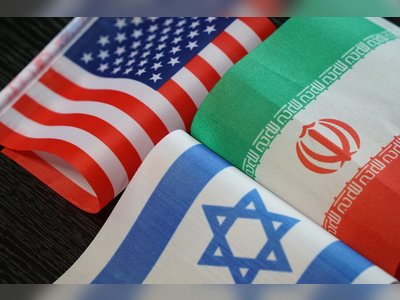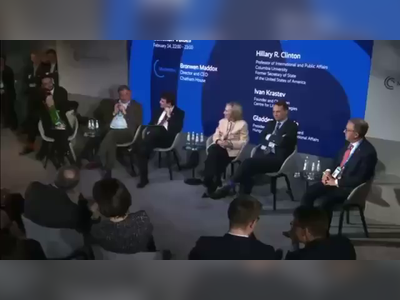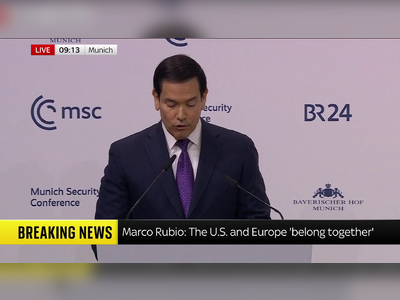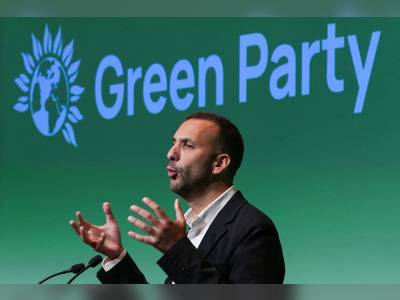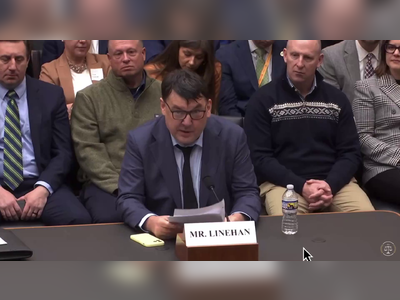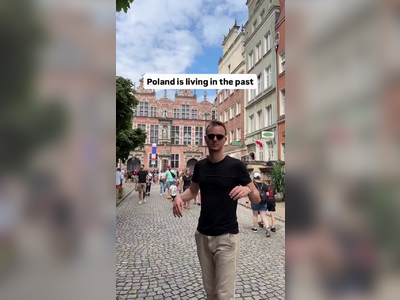
Arrest of Cultural Heritage Agency Director Raises Questions in Serbia
The arrest of Goran Vasić, head of the Republic Institute for the Protection of Cultural Monuments, has sparked political controversy and allegations of ulterior motives.
Goran Vasić, the acting director of the Republic Institute for the Protection of Cultural Monuments in Serbia, was arrested recently on accusations of falsifying documents related to the General Staff of the Serbian Armed Forces.
The allegations suggest that Vasić facilitated a government decision to derecognize the General Staff as a cultural asset under the protection of the institute.
Responses to the arrest have triggered significant political discourse.
Vladimir Đukanović, a member of the Serbian Progressive Party and a defense attorney, expressed skepticism regarding the motivations behind Vasić's arrest.
In a statement, he implied that the event is part of a broader political strategy aimed at discrediting President Aleksandar Vučić.
Đukanović characterized the circumstances surrounding the arrest as indicative of a potential 'colored revolution,' asserting that a series of actions appear to be aimed at criminalizing Vučić and possibly leading to his own arrest.
He highlighted the involvement of independent prosecutors in shaping public allegations against prominent political figures without formal investigations.
Despite the director's legal troubles, Đukanović pointed out that there are claims portraying the government's actions as influenced by foreign investment interests, notably implicating links to the family of Donald Trump regarding upcoming investment projects in Serbia.
The situation reflects ongoing tensions within Serbian politics, particularly surrounding the relationship between state institutions and government officials.
The Special Prosecutor's Office for Organized Crime has previously faced scrutiny for its apparent targeting of individuals close to President Vučić, raising concerns over the impartiality of legal proceedings.
This incident underlines the complex interplay between legal actions and political maneuvering in Serbia, as various factions navigate issues of governance, corruption, and influences perceived to be foreign.
The developments regarding the cultural heritage sector, particularly amid potential legislative changes and investment opportunities, highlight the intricate balance of heritage management and political accountability in the country.
The allegations suggest that Vasić facilitated a government decision to derecognize the General Staff as a cultural asset under the protection of the institute.
Responses to the arrest have triggered significant political discourse.
Vladimir Đukanović, a member of the Serbian Progressive Party and a defense attorney, expressed skepticism regarding the motivations behind Vasić's arrest.
In a statement, he implied that the event is part of a broader political strategy aimed at discrediting President Aleksandar Vučić.
Đukanović characterized the circumstances surrounding the arrest as indicative of a potential 'colored revolution,' asserting that a series of actions appear to be aimed at criminalizing Vučić and possibly leading to his own arrest.
He highlighted the involvement of independent prosecutors in shaping public allegations against prominent political figures without formal investigations.
Despite the director's legal troubles, Đukanović pointed out that there are claims portraying the government's actions as influenced by foreign investment interests, notably implicating links to the family of Donald Trump regarding upcoming investment projects in Serbia.
The situation reflects ongoing tensions within Serbian politics, particularly surrounding the relationship between state institutions and government officials.
The Special Prosecutor's Office for Organized Crime has previously faced scrutiny for its apparent targeting of individuals close to President Vučić, raising concerns over the impartiality of legal proceedings.
This incident underlines the complex interplay between legal actions and political maneuvering in Serbia, as various factions navigate issues of governance, corruption, and influences perceived to be foreign.
The developments regarding the cultural heritage sector, particularly amid potential legislative changes and investment opportunities, highlight the intricate balance of heritage management and political accountability in the country.
AI Disclaimer: An advanced artificial intelligence (AI) system generated the content of this page on its own. This innovative technology conducts extensive research from a variety of reliable sources, performs rigorous fact-checking and verification, cleans up and balances biased or manipulated content, and presents a minimal factual summary that is just enough yet essential for you to function as an informed and educated citizen. Please keep in mind, however, that this system is an evolving technology, and as a result, the article may contain accidental inaccuracies or errors. We urge you to help us improve our site by reporting any inaccuracies you find using the "Contact Us" link at the bottom of this page. Your helpful feedback helps us improve our system and deliver more precise content. When you find an article of interest here, please look for the full and extensive coverage of this topic in traditional news sources, as they are written by professional journalists that we try to support, not replace. We appreciate your understanding and assistance.
